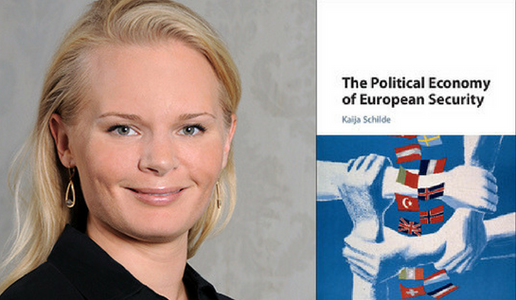Schilde Publishes The Political Economy of European Security
Kaija Schilde, Assistant Professor of International Relations at the Frederick S. Pardee School of Global Studies at Boston University, recently completed her new book The Political Economy of European Security (Cambridge University Press, November 2017).
The book, available now in the United Kingdom and for pre-order in the United States, draws on industry documents, interviews, interest group data, original survey, and comparative political theory to demonstrate that interest groups can change the outcomes of developing political institutions because they provide sources of external capacity, which in turn can produce authority over time.
“European Union internal security and external defense policies have effectively blurred into a single agenda,” Schilde said. “The conventional wisdom holds this is driven by migration and terrorism. However, foreign policy agendas are also informed by the political economy of security. The content and direction of EU immigration, security, and defense policies also originate in the logics of markets.”
Schilde said the book attempts to develop a better understanding of the relationship between private actors and international institutions in global governance as international institutions take on aspects of statehood once in the sole domain of nation states. The book explores how the presence of interest groups change EU governance outcomes.
“Interest groups in Brussels have mobilized in uneven patterns over time and across EU policy areas,” Schilde said. “The book argues that interest groups change the outcomes of developing political institutions such as the European Union because they provide sources of external capacity.”
According to Schilde, The Political Economy of European Security was written to be of interest to scholars outside of EU studies in addition to policymakers and academics trying to understand the phenomenon of EU lobbying. It is intended to appeal in particular to non-governmental organizations keeping track of lobbying, influence and issues of corruption in EU affairs as data in the book allows for evaluation of the relationship between organized interest groups and EU policy authority.
Schilde’s research interests involve European and transatlantic security, the political economy of defense and security markets and industries, EU lobbies and interest groups, and the role of private nonstate actors in national and international security. Learn more about her here.
